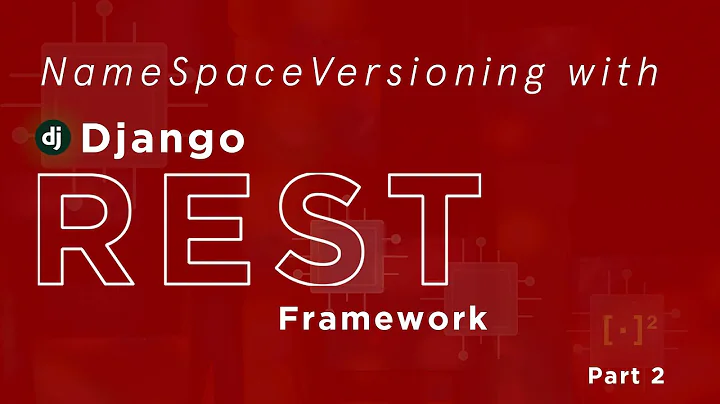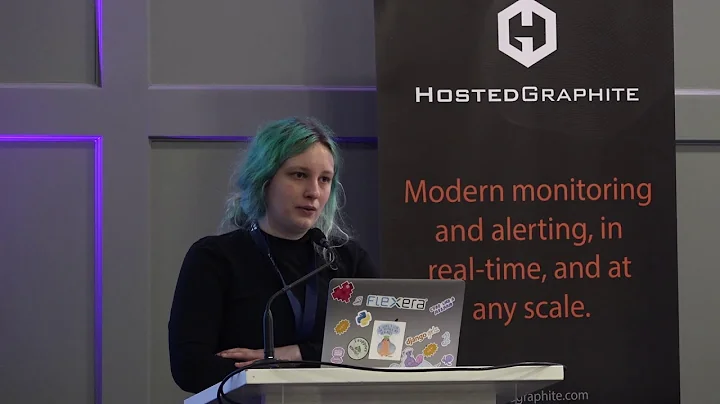django-rest-framework: api versioning
Solution 1
One way of doing this is to have the versioning specified as part of the media type.
This is what GitHub currently do for their API.
You can also include media type parameters in your accept headers, eg Accept: application/json; version=beta, which will successfully match against JSONRenderer. You can then code your view to behave differently depending on the accepted media type, see here.
There's lots of different patterns for versioning in APIs, and I wouldn't say there's any great consensus around the right approach yet, but that'd be one reasonable possibility.
Update Jan 2015: Better versioning support will be incoming in the 3.1.0 release. See [this pull request]
Update March 2015: Docs for the versioning API are now available.
(https://github.com/tomchristie/django-rest-framework/pull/2285) for more details.
Solution 2
UPDATE:
versioning is now properly supported.
There are some answers from your link:
We found it practical and useful to put the version in the URL. It makes it easy to tell what you're using at a glance. We do alias /foo to /foo/(latest versions) for ease of use, shorter / cleaner URLs, etc, as the accepted answer suggests. Keeping backwards compatibility forever is often cost-prohibitive and/or very difficult. We prefer to give advanced notice of deprecation, redirects like suggested here, docs, and other mechanisms.
So we took this approach, plus allowing clients to specify the version in request header (X-Version), here is how we did it:
Structure in side the API app:
.
├── __init__.py
├── middlewares.py
├── urls.py
├── v1
│ ├── __init__.py
│ ├── account
│ │ ├── __init__.py
│ │ ├── serializers.py
│ │ └── views.py
│ └── urls.py
└── v2
├── __init__.py
├── account
│ ├── __init__.py
│ ├── serializers.py
│ └── views.py
└── urls.py
project urls.py:
url(r'^api/', include('project.api.urls', namespace='api')),
api app level urls.py:
from django.conf.urls import *
urlpatterns = patterns('',
url(r'', include('project.api.v2.urls', namespace='default')),
url(r'^v1/', include('project.api.v1.urls', namespace='v1')),
)
version level urls.py
from django.conf.urls import *
from .account import views as account_views
from rest_framework.routers import DefaultRouter
router = DefaultRouter()
router.register('account', account_views.AccountView)
router.register('myaccount', account_views.MyAccountView)
urlpatterns = router.urls
create a middleware to switch to the correct code by changing the path_info, please note there is a caveat that namespace ('api') defined in project level urls is not flexible and needs to be known in middleware:
from django.core.urlresolvers import resolve
from django.core.urlresolvers import reverse
class VersionSwitch(object):
def process_request(self, request):
r = resolve(request.path_info)
version = request.META.get('HTTP_X_VERSION', False)
if r.namespace.startswith('api:') and version:
old_version = r.namespace.split(':')[-1]
request.path_info = reverse('{}:{}'.format(r.namespace.replace(old_version, version), r.url_name), args=r.args, kwargs=r.kwargs)
Sample url:
curl -H "X-Version: v1" http://your.domain:8000/api/myaccount/
Solution 3
@James Lin gave a great answer. In comments to the answer @Mar0ux asked what to do with broken HyperlinkedRelatedField fields.
I fixed this with changing HyperlinkedRelatedField to the SerializerMethodField and calling reverse with, very unobvious, passing extra parameter current_app to it.
For example, I have an app 'fruits_app', with namespace versions 'v1', 'v2'. And I have serializer of Fruit model. So to serialize url I create a field
url = serializers.SerializerMethodField()
And corresponding method:
def get_url(self, instance):
reverse.reverse('fruits_app:fruit-detail',
args=[instance.pk],
request=request,
current_app=request.version)
With nested namespaces you will need to change add those namespaces to current_app. For example, if you have an app 'fruits_app' with namespace versions 'v1', 'v2', and instance namespace 'bananas' inside the app, method for serializing Fruit url will look like:
def get_url(self, instance):
reverse.reverse('fruits_app:fruit-detail',
args=[instance.pk],
request=request,
current_app='bananas:{}'.format(request.version))
Related videos on Youtube
w--
Updated on July 09, 2022Comments
-
w-- almost 2 years
so googling around it appears that the general consensus is that embedding version numbers in REST URIs is a bad practice and a bad idea.
even on SO there are strong proponents supporting this.
e.g. Best practices for API versioning?My question is about how to accomplish the proposed solution of using the accept header / content negotiation in the django-rest-framework to accomplish this.
It looks like content negotiation in the framework,
http://django-rest-framework.org/api-guide/content-negotiation/ is already configured to automatically return intended values based on accepted MIME types. If I start using the Accept header for custom types, I'll lose this benefit of the framework.Is there a better way to accomplish this in the framework?
-
w-- about 10 yearsApparently this question has earned a popular question badge and just realized i never accepted the answer. Thanks for all your hard work on the framework Tom!
-
 maroux over 9 yearsThis approach would be fine, except that it breaks hyperlinked fields (
maroux over 9 yearsThis approach would be fine, except that it breaks hyperlinked fields (HyperlinkedRelatedFieldetc). Any ideas? -
 James Lin over 9 yearsI haven't got a project setup to use
James Lin over 9 yearsI haven't got a project setup to useHyperlinkedRelatedFieldI guess your problem would be the link going to the default version if you specified a different version? -
 maroux over 9 yearsExactly. I am inclined to go with
maroux over 9 yearsExactly. I am inclined to go withAcceptheader method of versioning so that URLs don't change at all. -
 James Lin over 9 yearsI am afraid there is no easy way to fix until versioning is baked into the package, so it will produce version aware urls for
James Lin over 9 yearsI am afraid there is no easy way to fix until versioning is baked into the package, so it will produce version aware urls forHyperlinkedRelatedField -
 James Lin over 9 years... unless you like monkey patch?
James Lin over 9 years... unless you like monkey patch? -
 maroux over 9 yearsI don't like monkey patching. But I don't mind forking and adding support for versioned urls.
maroux over 9 yearsI don't like monkey patching. But I don't mind forking and adding support for versioned urls. -
 ferrangb over 9 yearsWhat about working without namespaces and not creating the middleware?
ferrangb over 9 yearsWhat about working without namespaces and not creating the middleware? -
 Eyeball about 9 yearsSo where do we put the models?
Eyeball about 9 yearsSo where do we put the models? -
 James Lin about 9 yearsYour data models will be in your app folder.
James Lin about 9 yearsYour data models will be in your app folder. -
Eduard Gamonal over 8 yearsJames, do you have one app per version? or one app called "api" and modules in it? do you mean having separate models per version?
-
 James Lin over 8 yearsI have multiple apps with models in it, and one app which is the 'API' which has versions.
James Lin over 8 yearsI have multiple apps with models in it, and one app which is the 'API' which has versions. -
 deserg about 3 years@Mar0ux I fixed
deserg about 3 years@Mar0ux I fixedHyperlinkedRelatedFieldwith making theSerializerMethodFieldand callingreversewith, very unobvious, passing extra parametercurrent_appto it. For example, I have an app 'fruits_app', with namespace versions 'v1', 'v2'. And I have serializer of Fruit model. So I create a fieldurl = serializers.SerializerMethodField()And the reverse call would be like:def get_url(self, instance): reverse.reverse(''fruits_app:fruit", args=[instance.pk], request=request, current_app=request.version)






